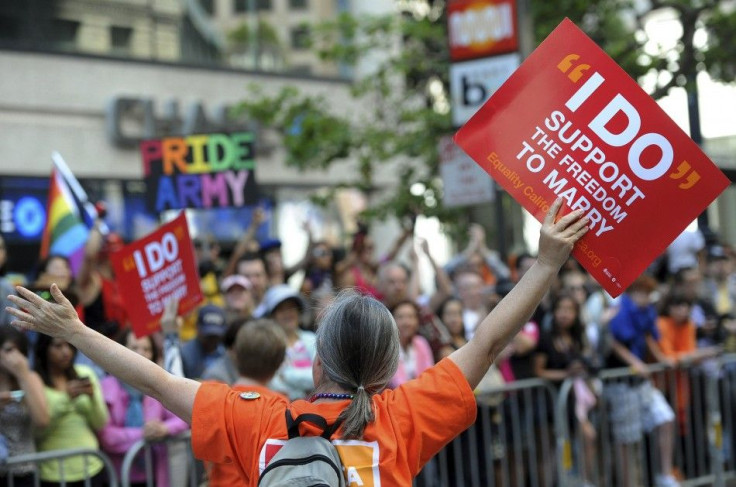Calif. High Court Steps into Gay Marriage Fight

The Supreme Court of California appeared sympathetic to allowing gay marriage opponents to defend the state's same-sex wedding ban in court, a crucial step in a case that could set national precedent.
At a hearing in San Francisco, several high court justices lobbed aggressive questions regarding the technical -- yet crucial -- legal issue in a closely watched gay marriage case.
Earlier this year, the 9th Circuit Court of Appeals asked the Supreme Court of California whether supporters of an initiative, like California's Proposition 8 ban on gay marriage, could defend a ballot proposition if state leaders did not.
California officials had declined to defend the ban, leading the 9th Circuit to ask whether the governor and attorney general may effectively veto Prop 8 by such a refusal.
At the hearing on Tuesday, Justice Joyce Kennard was one of several justices who argued that barring gay marriage opponents from the case would damage the legal process.
Agreeing with you would not promote principles of fundamental fairness, Kennard told former Solicitor General Theodore Olson, who represents two gay couples seeking to wed.
INITIATIVE PROCESS
California voters banned same sex weddings in 2008 by approving so-called Proposition 8. But last year a district judge ruled the measure unconstitutional.
More than 40 states have outlawed same sex marriage, and the California challenge could have a national impact if the Supreme Court ultimately takes up the case.
Olson in the Tuesday hearing argued that California's constitution does not give the people a right to defend initiatives in court.
Doesn't that make the initiative process illusory?, Chief Justice Tani Cantil-Sakauye asked Olson.
Protectmarriage.com attorney Charles Cooper, who has been defending Prop 8 throughout the litigation, warned about the danger of a court striking down an initiative -- without hearing from the side that proposed it.
Surely it should be clear that the exercise of the fundamental right to propose that initiative will have been nullified, Cooper said.
Two rival demonstrations faced off outside court Tuesday morning more than an hour before the hearing. About 35 pro-gay marriage supporters chanted I am somebody, and I demand full equality.
Ten demonstrators voiced their opposition to same-sex unions. We don't break God's law, God's law breaks us, shouted one man.
The Supreme Court of California is expected to rule within 90 days, at which point the case would return to the 9th Circuit.
Once the 9th Circuit decides, the case could be appealed to the U.S. Supreme Court.
The case in the Supreme Court of California is Perry v. Schwarzenegger, S189476.
© Copyright Thomson Reuters 2024. All rights reserved.




















